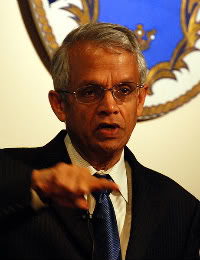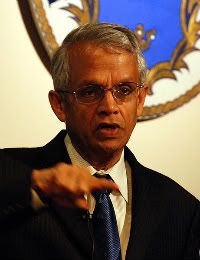Global Climate Change and Apathy – Crisis Fatigue?


I’m reminded of my interview with the man generally credited with the discover of global warming in the early 1970s, Dr. V. Ramanathan, now teaching and conducting ongoing atmospheric research at the Scripps Institution. I asked if he agreed that fewer people believed in his theory now than two or three years ago. “Oh yes,” he replied. “People have a limited amount of space in their heads for crises; they can only hold so many terrifying ideas in place at one time.”
A related idea that I support is one I call “crisis fatigue.” I liken it to the phenomenon in which the nerve cells in our nostrils that process smell soon “tire” of a certain odor stimulus and fail to respond to it completely after a minute or two. It seems that the public — at least in the US — has become numb to the enormity of the threat posed by global climate change.
